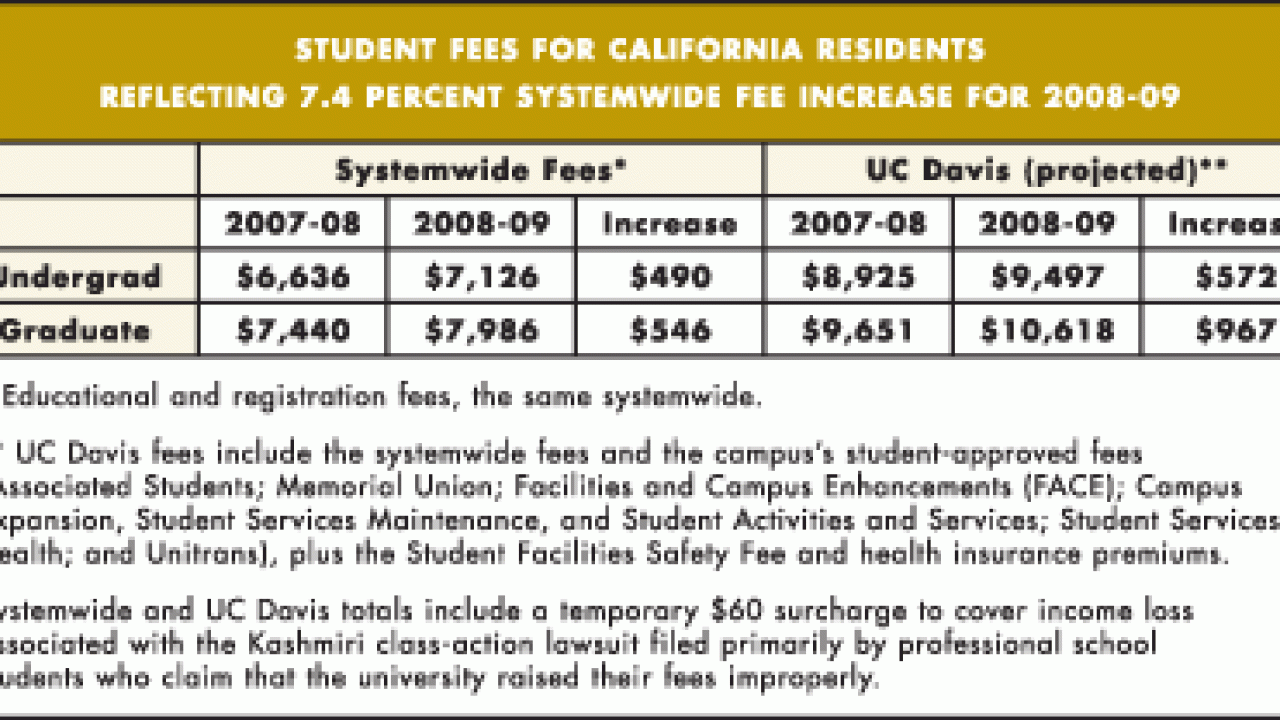UC Davis officials are thankful for Gov. Schwarzenegger's budget revision, but caution that all it does is get the university back to even.
In other words, while the governor offered the UC system an additional $98.5 million, his total proposed allocation to UC is the same as 2007-08, about $3.26 billion, with nothing extra for price increases for the same amount of goods and services, nothing extra for enrollment growth, nothing extra for pay raises, nothing for new initiatives.
"We're still underfunded to meet our base operating costs," said Kelly Ratliff, associate vice chancellor for budgeting at UC Davis. "And some of those costs, like utilities and health insurance, are likely to go up no matter what -- which means we still need to make cuts."
There is some good news: Davis' share of the extra $98.5 million from the revised budget could be about $14 million, thus saving that much in cuts. It is just an estimate, but, if it holds, Ratliff said, she could lower her estimate of the campus's 2008-09 shortfall to $40 million to $42 million.
Academic units and other departments already are drafting proposals for a total of $17.7 million in permanent funding cuts, by order of Provost and Executive Vice Chancellor Barbara Horwitz. She and Ratliff also anticipate one-time reductions to help the campus make it through 2008-09.
As Horwitz meets with managers, she asks them to consider: "What can we stop doing? What can we do differently? What new revenue can we generate?"
The UC Board of Regents is asking the same questions — and, during a three-day meeting at UCLA last week, approved three answers:
• Student fee increases totaling 7.4 percent, effective with the 2008 summer sessions. UC officials estimate $70 million in additional revenue, after diverting large pecentages to financial aid: 33 percent "return to aid" for undergraduates and professional school students, and 50 percent for graduate academic students.
Also, UC will use some of the added fee revenue to boost funding for student mental health services.
• The return of the START Program, under which eligible employees can voluntarily cut their hours -- subject to department head approval.
The Staff and Academic Reduction in Time Program (START), if implemented as planned, would run from July 1, 2008, to June 30, 2010. During this time, eligible part-time and full-time employees could reduce their percentage of time worked from 10 percent to 50 percent (based on full-time status); for as little as one month or as long as the entire two years.
Participants would not lose any retirement plan credit, vacation or sick leave accrual, or health insurance or other benefits.
Eligibility systemwide would extend to full- and part-time nonprobationary career ("regular status") staff employees and academic appointees, except those in faculty and student academic titles, and postdoctoral scholars.
Each campus would be authorized to further limit eligibility. For example, the UC Davis Health System will not participate, due to the potential for patient care service delivery issues and the need to bring in replacement workers when START-related absences affect legally mandated staffing ratios.
• 20 percent worth of savings in the Office of the President's budget for 2008-09. The UCOP budget totals $203.1 million, down $51.7 million from the prior year, with half the savings attributed to direct cuts and the other half from the transfer of programs out of the president's office.
Overall, university officials said they anticipate a total savings of about $68 million in administrative spending at UCOP and the campuses.
The UC system is a long way from knowing how much it will ultimately receive from the state, because the budget is still subject to debate among legislators, and negotiations with the governor.
For more about the regent's budget actions, and more details on all student fee increases, click here.
For more on UC Davis budget planning, click here.
Media Resources
Dave Jones, Dateline, 530-752-6556, dljones@ucdavis.edu
